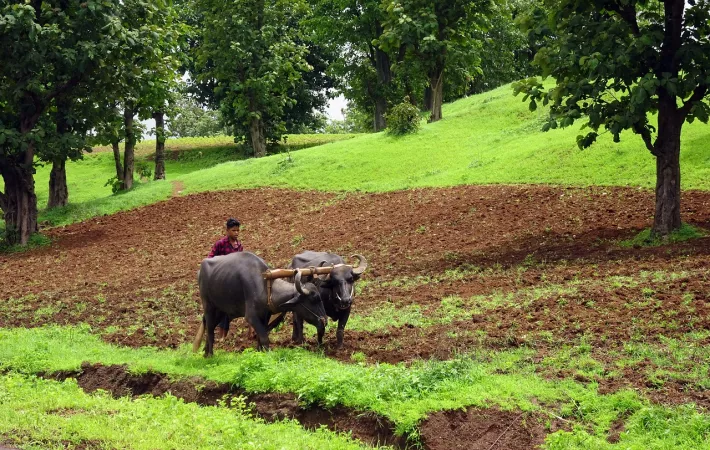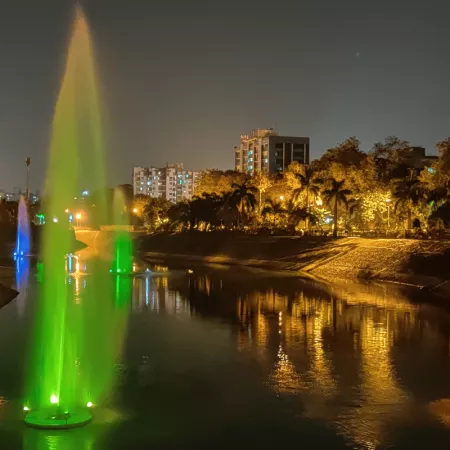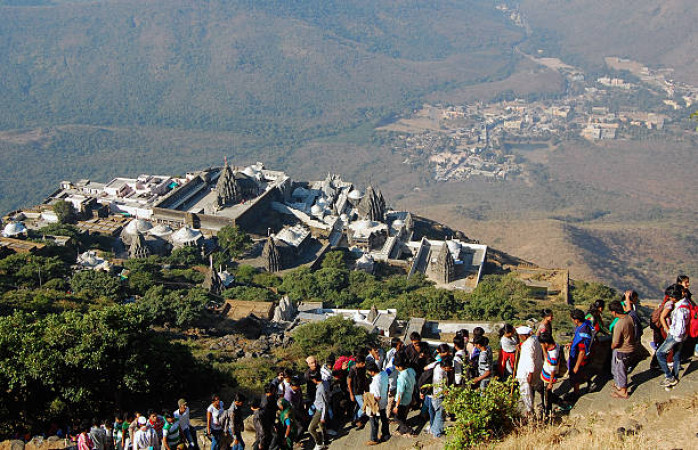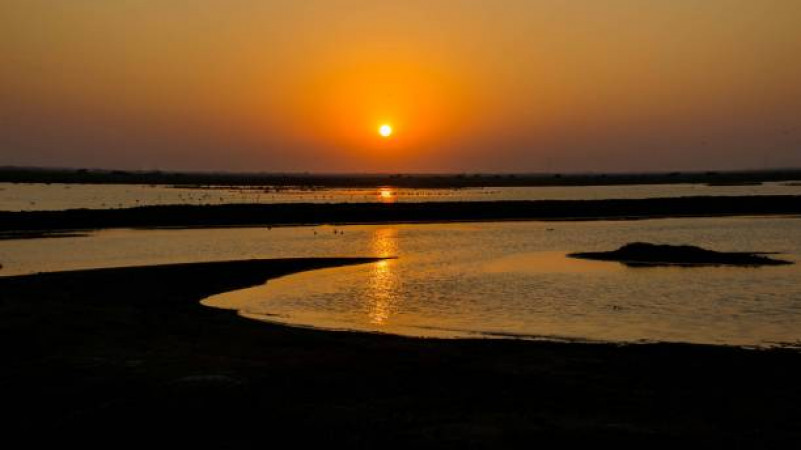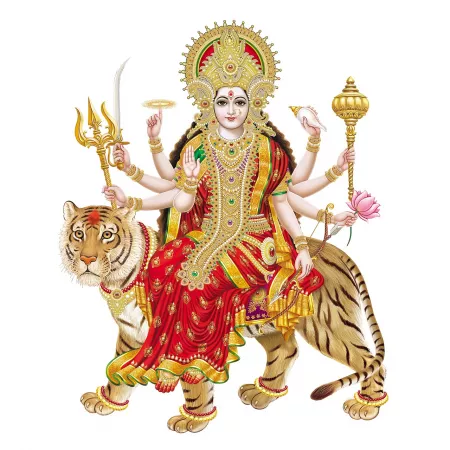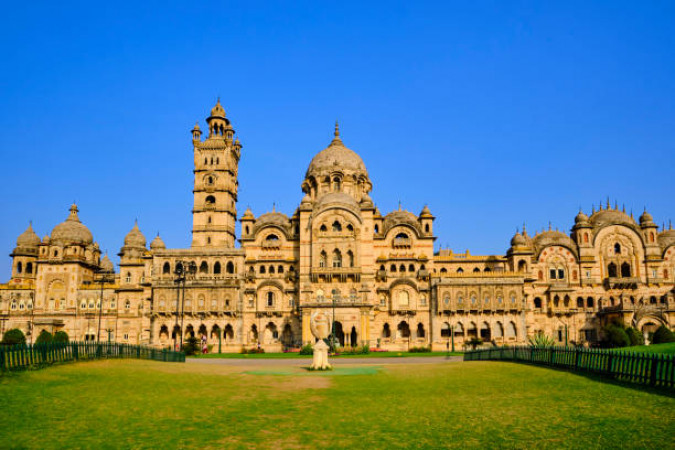Dang Travel Guide
Dang, located in Nepal, is a hidden gem known for its rich cultural heritage, stunning natural landscapes, and warm hospitality. The region is famous for its unique tribal communities, lush forests, and diverse wildlife. Dang offers a perfect blend of adventure, culture, and relaxation for travelers seeking an off-the-beaten-path experience.Top Attractions in Dang
- Royal Bardia National Park
- Sisne Himal Trek
- Rani Mahal
- Devil's Fall
- Ghorahi Cement Industries
Dang is Famous for
Dang is most famous for its Royal Bardia National Park, which is home to a wide variety of wildlife, including tigers, elephants, and rhinoceros.Top Attractions in Dang
- Exploring the wilderness of Royal Bardia National Park
- Trekking in the stunning Sisne Himal region
- Visiting the historic Rani Mahal palace
- Chasing waterfalls at Devil's Fall
- Learning about the local industry at Ghorahi Cement Industries
What's Great about Travelling to Dang?
- Opportunity to explore untouched natural beauty
- Immerse in the authentic culture of tribal communities
- Adventure activities like wildlife safaris and trekking
What's Not So Great about Travelling Dang?
- Limited tourist infrastructure
- Challenges in transportation within the region
- Lack of luxury accommodations
Travel Tips for Dang
- Obtain necessary permits for national park visits
- Pre-book accommodations in advance
- Respect local customs and traditions
Important Dang trip information
- Ideal Duration: A week to fully explore the region
- Best Time to Visit: October to March for pleasant weather
- Nearby Airports and Railway Stations: The nearest airport is Nepalgunj Airport and the closest railway station is Nepalgunj Railway Station.
FAQ's on Dang
Q1: What is the best time to visit Dang?
The best time to visit Dang is during the cooler and drier months from November to February when the weather is more pleasant for exploring the country. This period also coincides with various festivals and events, offering a vibrant cultural experience. However, if you enjoy lush green landscapes, the monsoon season from June to September can be a good time to visit despite the occasional rainfall.
Q2: Do I need a visa to travel to Dang?
Travelers to Dang typically require a visa for entry. It is advisable to check the specific visa requirements based on your nationality before traveling. Some nationalities may be eligible for visa-on-arrival or visa-free entry for a limited period. Ensure your passport has sufficient validity and blank pages for stamps.
Q3: What are the must-visit attractions in Dang?
Dang offers a plethora of attractions for visitors. Don't miss exploring the ancient temples and historical sites in the capital city, experiencing the serene beauty of the countryside, and interacting with the warm and welcoming locals. The lush national parks and wildlife sanctuaries are perfect for nature enthusiasts, while the bustling markets and vibrant festivals showcase the cultural richness of the country.
Q4: Is Dang a safe place to travel?
Dang is generally considered a safe destination for travelers. However, it is advisable to exercise caution in crowded areas, avoid displaying valuables openly, and be aware of your surroundings. Certain remote regions may have specific safety concerns, so it is recommended to stay informed and follow local guidelines.
Q5: What is the local currency in Dang and can I use credit cards?
The local currency in Dang is the Dang Dollar (DD). While credit cards are accepted in major establishments like hotels and restaurants in urban areas, it is advisable to carry cash, especially in rural areas and local markets. ATMs are available in cities for convenient access to cash.
Q6: What is the local cuisine like in Dang?
Dang's cuisine is a delightful blend of flavors and influences. From spicy curries and flavorful rice dishes to exotic fruits and street food delights, there is something for every palate. Don't miss trying traditional dishes like *mo:mo*, a type of dumpling, and *dal bhat*, a staple meal of lentil soup and rice. Vegetarian options are widely available, and adventurous foodies can sample local delicacies like *sukuti* (dried meat) and *sel roti* (sweet rice bread).
Q7: What transportation options are available in Dang?
Transportation options in Dang include buses, taxis, and rental services. Public buses are the most common mode of transport for getting around the country, providing a budget-friendly option for travelers. Taxis are available in urban areas and can be hired for more convenience and comfort. Car rentals are also popular among tourists who prefer to explore the country at their own pace. Additionally, motorbikes and bicycles are available for rent in some areas, offering a unique way to experience Dang's scenic landscapes.
Q8: Are there any cultural norms or etiquette I should be aware of when visiting Dang?
When visiting Dang, it is important to respect the local customs and traditions. Greetings are often accompanied by a slight bow or a *Namaste* gesture with folded hands. It is customary to remove your shoes before entering someone's home or a place of worship. Dress modestly, especially when visiting religious sites. Avoid public displays of affection, as these are considered inappropriate in the local culture. When dining, wait to be seated and follow the lead of your host in terms of meal etiquette. Showing respect towards elders and authority figures is highly valued in Dang's society.
Q9: I am a travel agent. How can I buy travel leads of Dang?
Register yourself as a travel agent at agents.tripclap.com and then you can buy travel leads to Dang once your account is approved. For more details contact our support team at +91-8069186564 or support@tripclap.com
